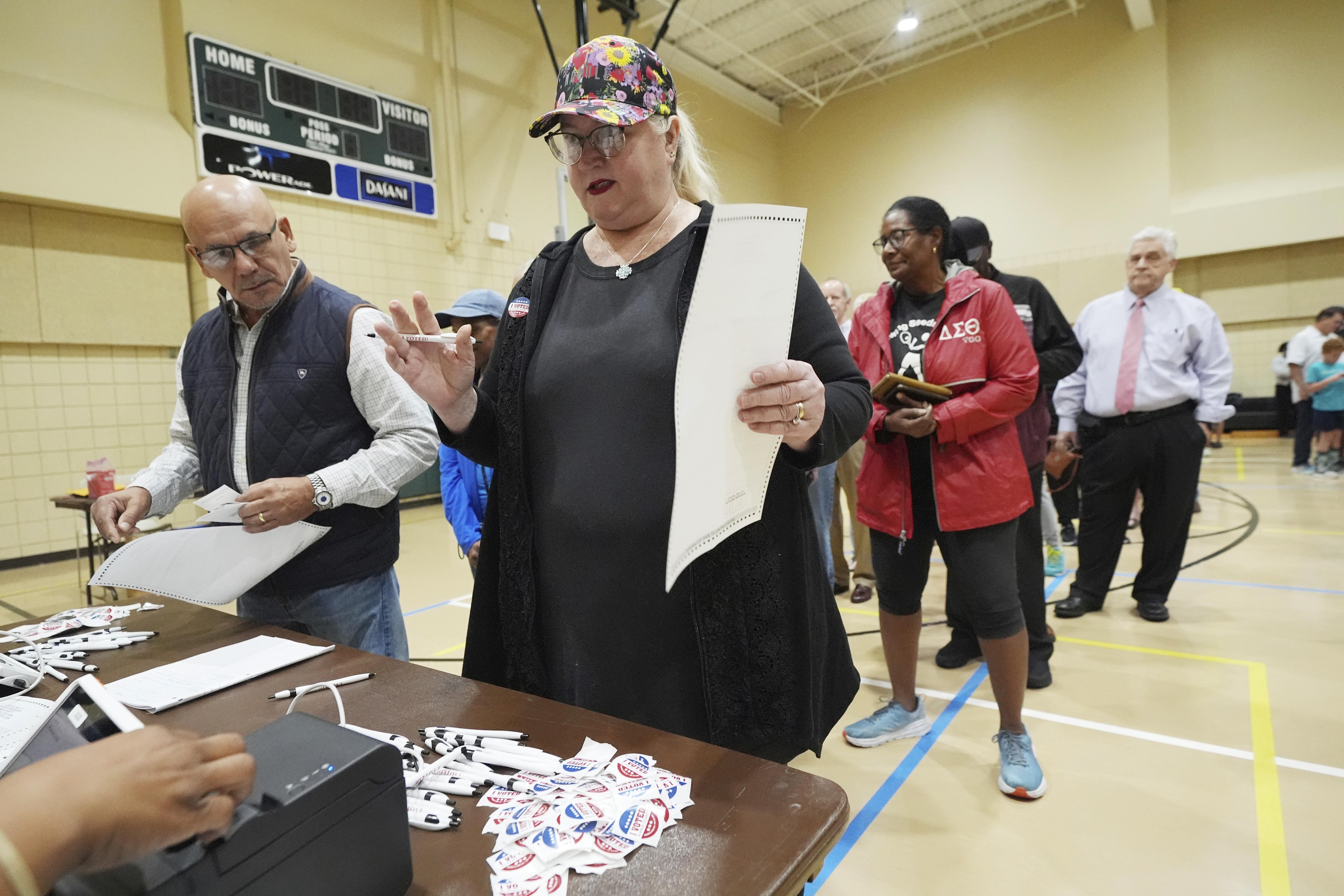More than a dozen Mississippi legislative seats are on the ballot Tuesday, the result of a federal court ruling that found the state’s political maps diluted Black voting power. Both national parties are now pouring energy, and money, into contests that could reshape the makeup of the state Legislature.
A three-judge federal panel ordered the state to redraw parts of its legislative maps in a July 2024 ruling that the maps adopted in 2022 violated the Voting Rights Act. The court approved new maps in May, setting up 14 special elections in the Chickasaw County, DeSoto County and Hattiesburg areas, though only 10 are being contested. The Senate District 26 election is unrelated to the court ruling and is being held to fill the seat vacated by John Horhn after he was sworn in as Jackson's mayor. Similarly, the Senate District 24 election is to fill the seat vacated by Sen. David Jordan earlier this year when he retired.
A rare off-year showdown
For Mississippi, where incumbents often cruise through re-election and legislative turnover is slow, the sheer number of open seats is unusual. The stakes are even higher because several of the newly drawn districts could become competitive for the first time in decades.
Mississippi Republican Party Chair Mike Hurst said the GOP’s message isn’t changing, even with newly configured districts and outside Democratic investment.
“The beauty of these races is that the messaging is the same,” Hurst said. “Mississippians want someone who’s going to put Mississippi and Mississippians first.”
Hurst said his party is working closely with local campaigns, statewide officials, and legislative leaders to back Republican candidates.
“The RNC is pouring resources into Mississippi, but we just don’t talk about it,” Hurst said. “We don’t like to broadcast what we’re doing.”
Democrats see a “historic opportunity”
The Democratic National Committee calls the races a major test of its strategy to invest in red states that have long been written off as unwinnable. DNC National Coordinated Campaign Director Sarah Sterner described the party’s six-figure investment into the special elections as both symbolic and strategic.
“We have the opportunity to break the Republican supermajority in the state senate and to deliver meaningful representation for historically disenfranchised communities across the state,” Sterner said.
Sterner said the DNC sees Mississippi as a chance to show that patient, year-round organizing can move the needle even in deep-red states.
“One of our tenets is that we believe in organizing early and organizing everywhere,” Sterner said. “We’re not simply focused on battleground states or one single election cycle. When you organize everywhere, you can win anywhere.”
Beyond the immediate contests, Sterner said, the goal is to build permanent infrastructure through logistical and financial support. The DNC says its new Red State Fund will continue providing five-figure monthly investments into Mississippi beyond 2025.
“We are supporting the State Democratic Party in hiring on-the-ground staff to bolster their organizing efforts … to help them support their voter contact and voter-protection efforts, and to make sure they have the resources that will last beyond this election cycle,” Sterner said.
Competing visions of what’s at stake
Hurst dismissed the idea that Democrats could meaningfully cut into the GOP’s legislative dominance.
“At the end of the day, we’ve got better candidates, harder-working campaigns, and the best policies,” Hurst said. “I don’t see Mississippians voting against their self-interest.”
He also argued that Mississippi’s economy is strong and that national Democrats bear responsibility for federal dysfunction.
“It’s the Democrats who continue to stall and to block budget resolutions in Congress,” Hurst said.
Sterner, meanwhile, framed the races in terms of representation and access.
“Every community deserves representation, right? And that is at the heart of what we believe,” Sterner said. “This is just one example of how we are fighting here at the DNC for that representation for historically disenfranchised communities, not just in Mississippi but across the country.”
Both sides agree on one point: these special elections will serve as a test of whether Mississippi’s new maps, and each party’s messaging, can shift the balance of power in a state long defined by one-party rule.
Mississippi special legislative elections candidates
| Senate District | Candidates |
|---|---|
| 1 (DeSoto & Tate) | Michael McLendon (R, incumbent); Chris Hannah (D); Jon Stevenson (R) |
| 2 (DeSoto & Tunica) | Theresa Isom (D); Kelly Andress (D); Robert Walker (D); Charlie Hoots (R) |
| 11 (Coahoma, DeSoto, Quitman, Tate & Tunica) | Reginald Jackson (D, incumbent); Kendall Prewett (R); Abe Hudson Jr. (D) |
| 19 (DeSoto) | Kevin Blackwell (R, incumbent); Dianne Dodson Black (D) |
| 24 (Leflore, Panola & Tallahatchie) | Curressia M. Brown; Jason Colquett; Everette Hill; Loretta McClee; Justin Pope; Georgio Proctor |
| 26 (Hinds & Madison) | Coleman Boyd; Jermaine Cooley; Letitia Johnson; Theresa Kennedy; Kamesha Mumford; James Pittman; Jeffrey Stallworth |
| 42 (Forrest, Greene, Jones & Wayne) | Don Hartness (R) |
| 44 (Forrest, Lamar & Perry) | Chris Johnson (R, incumbent); Shakita Taylor (D) |
| 45 (Forrest & Lamar) | Anna Rush (R); Johnny L. DuPree, Ph.D. (D) |
| House District | Candidates |
|---|---|
| 16 (Chickasaw, Lee, Monroe & Pontotoc) | Rickey Thompson (D, incumbent); Brady Davis (D) |
| 22 (Chickasaw, Clay & Monroe) | Jon Lancaster (R, incumbent); Justin Crosby (D) |
| 26 (Bolivar, Coahoma & Sunflower) | Mary Frances Dear-Moton; Kimberlyn “Kim” C. Seals; Otha E. Williams III |
| 36 (Clay, Lowndes, Monroe & Oktibbeha) | Karl Gibbs (D, incumbent) |
| 39 (Lowndes & Monroe) | Dana McLean (R, incumbent) |
| 41 (Lowndes) | Kabir Karriem (D, incumbent); Pierre Beard Sr. (D) |
Voters can find their polling location and view a sample ballot here.
Voters who cast an absentee ballot can track it here.



